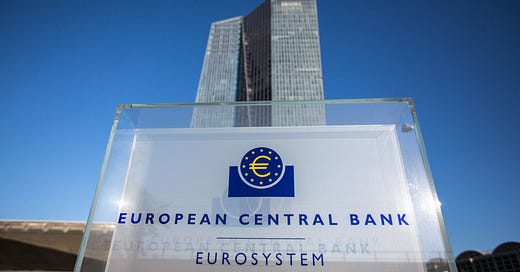The events that transpired over the latter part of last week could set higher volatility and uncertainty for the days ahead. When it comes to interest rate policy direction, we always look at the Fed to give us the lead but for the last few decades since the founding of the Euro, the weakest link has been the Eurozone.
Why is that? It is because the Euro has a straight-jacketed interest rate policy to suit all countries within the system with very diverse economic growth and internal policies. The biggest test for the Euro area happened in 2012. It will be difficult for anyone to understand the full impact of what was happening then and what could have happened unless you were in the markets at that time.
If it were not for Mario Draghi the then ECB President’s speech in July 2012, “the ECB is ready to do whatever it takes to preserve the Euro. And believe me, it will be enough.” And it worked. Remember what Ben Bernanke recently said at a recent gathering in Washington, “Monetary policy is 98% talk and 2% action”. Can the central banks pull it off again? Do they really want to? That’s the million-dollar question.
Back in 2012, just before the Draghi speech, Spain and Italy were almost on the brink of a debt default. Speculators smelled blood and they were hitting the bond markets hard to unsustainable levels. If one country failed, the others would have fallen spectacularly like dominos. Then those defaulted countries would have left the Euro to form their own national currencies, inflating away the debt through currency devaluations. Somehow Draghi was able to backstop that without the ECB buying a single bond. That really purged the speculators and reversed the capital flight. Very quickly the yields on those bonds plunged.
In 2012 the yields on Italian and Spanish bonds were around 7% and were on default watch. Italy’s external debt was 126% of GDP and Spain's was about 90% of GDP. Now, Italian debt is 150% of GDP with yields around 3.5%, and Spanish yields at 2.5% with 118% of GDP.
You don’t have to be a rocket scientist to figure out what pressure they could be under if the ECB is going to do a series of rate hikes and simultaneously move towards ending QE.
On June 09 the ECB announced the end of QE and has vowed to conduct a series of interest rate hikes starting at the beginning of July. The whole world has woken up to the inflation threat now after years of repeated denial. With the war in Europe, the situation is much more difficult for the ECB to handle now. Speculators will be all out to attack the European sovereign and corporate bond markets.
Now let’s get back to the US. Despite expectations of a cooling off in inflation, the May inflation was on the higher side. The most worrisome factor was the monthly change. In a month where prices were expected to be lower, the change in CPI from April to May was 1% if we annualize that we get 12.7% for the year. The Fed will be forced to raise interest rates yet another time this week. Many forecasters are looking for a 75 bps hike but my hunch is it will be still 50 basis points.
The Fed’s preferred plan is to fight inflation by attacking demand. Meaning killing jobs growth, wages, and guiding the net worth effect through a lower stock market. Think this is working as well. Household net worth has fallen for the first time in two years. Confidence in May was at a record low. Real estate should come off as well but the leverage is nothing close to what the situation was in GFC.
Having pointed out all the negative risks in the market let me caution you that the short position in the markets is huge. It will only take a change in sentiment and some positive news which all can happen at the same time to start a significant rally to the upside.
If you received value from this post, and you’d like to send some back, or if you’d like to signal to me to continue spending time on these types of explorations, feel free to buy me coffees (thank you!):
So, there we go. Thanks for reading Breezy Briefings. If you enjoyed this, I'd really appreciate it if you could take a second and tell a friend. Honestly. It makes such a big difference.
Forward this email. Recommend the newsletter. Share on Twitter, WhatsApp, Telegram, LinkedIn, Slack, wherever!
Join Breezy Briefings’ Official Telegram Channel: https://t.me/BreezyBriefings
Abraham George is a seasoned investment manager with more than 40 years of experience in trading & investment and multi-billion dollar portfolio management spanning diverse environments like banks (HSBC, ADCB), sovereign wealth fund (ADIA), a royal family office and a hedge fund. Currently, he is a co-founder of a new hedge fund where foreign citizens can invest in Indian growth stocks like Tanla operating in hyper-growth markets like CPaaS.



